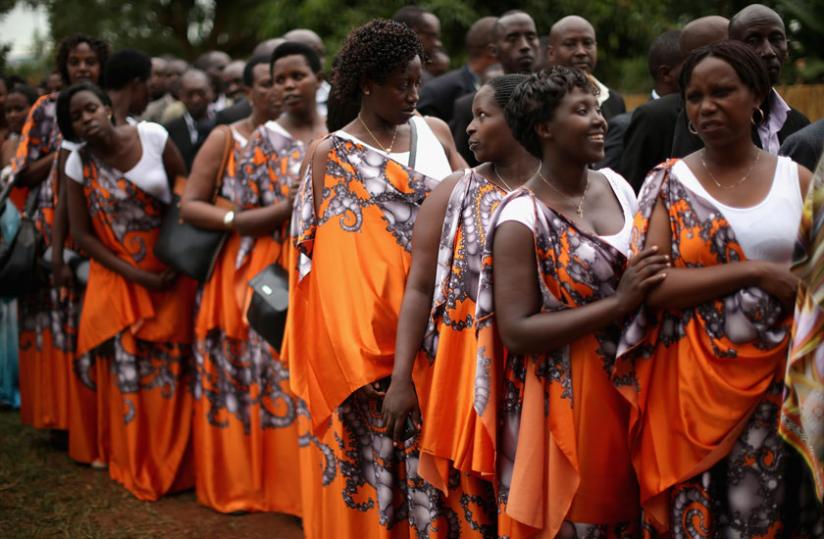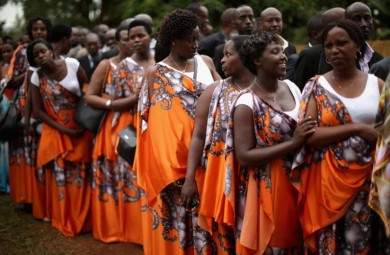
Kwibuka 22: Women recollect the journey of hope and resilience.
By Donah Mbabazi & Sharon Kantengwa, The New Times.
Today marks 22 years since over one million Rwandans were killed during the 1994 Genocide against the Tutsi.
The tragedy has been described as the worst and most gruesome in modern history.
During the Genocide, women were subjected to massive sexual violence and more than two decades later, the scars left by the Genocide are yet to heal.
Devota Nirere (not real names) was only twelve years old when the Genocide began. She recalls how one by one, her family members were killed and the horrific murders still give her nightmares.
“When the killings began, everyone in my family tried to flee for dear life… that was the last I ever saw any of my family members. I was defiled and beaten by Interahamwe gangs until I started wishing for death to come and take me,” Nirere sadly recalls.
Even with all the horror stories that she has to tell, Nirere was one of the survivors when the Rwanda Patriotic Army (RPA) finally stopped the killings. Through counseling and prayers, Nirere has moved on with her life and today, she has her own family and she owns a small business.
Although the exact number of women raped isn’t known, rape was exceedingly used as a torture tool during the Genocide. Thousands of women were gang-raped or subjected to sexual slavery. Even after the torture, many were murdered in the most barbaric ways ever recorded in human history.
However, much as the Genocide robbed women of everything, women survivors haven’t given up. They have instead picked up the pieces and are trying to rebuild their lives.

********************************************
What is the best way to help Genocide survivors?
Angelique Batamuliza, Receptionist
For me, I believe that by engaging them in development activities like tailoring, their minds will be occupied and this will help them not to concentrate on the bad past experiences. Social support and counseling is vital too.
Claudine Umutoniwase, IT technician
Decent houses should be built for them. There should also be profitable projects based on the respective areas of survivor’s residences. For instance, in the countryside, livestock rearing projects such as poultry can be set up for them while in the urban areas; they can join cooperatives to run various businesses.
Denyse Mukantwari, Student
I think the best way is by offering them support such as building new houses for them. However, psycho-social support is important too as it will help them forget the past and concentrate on the present.

